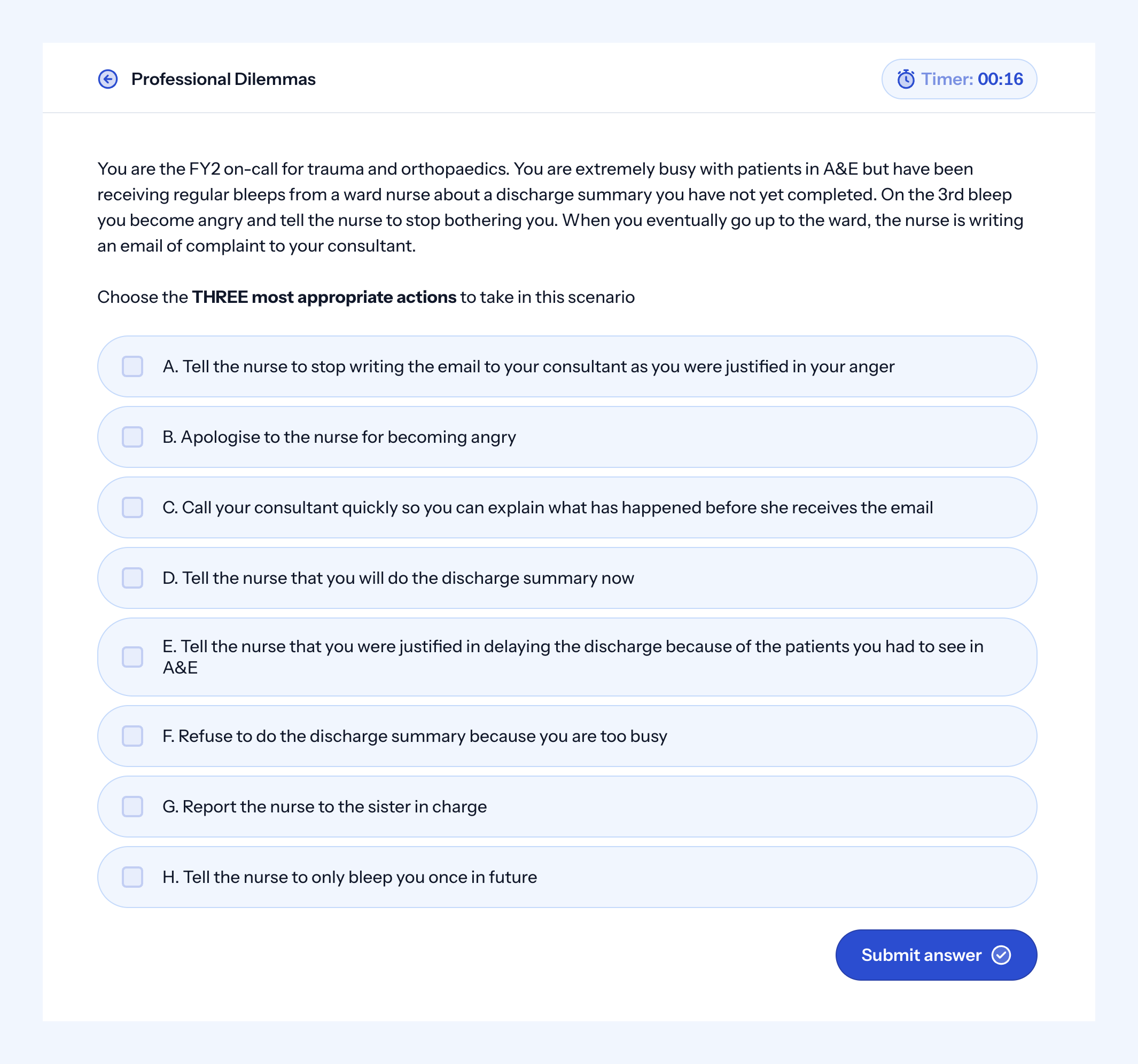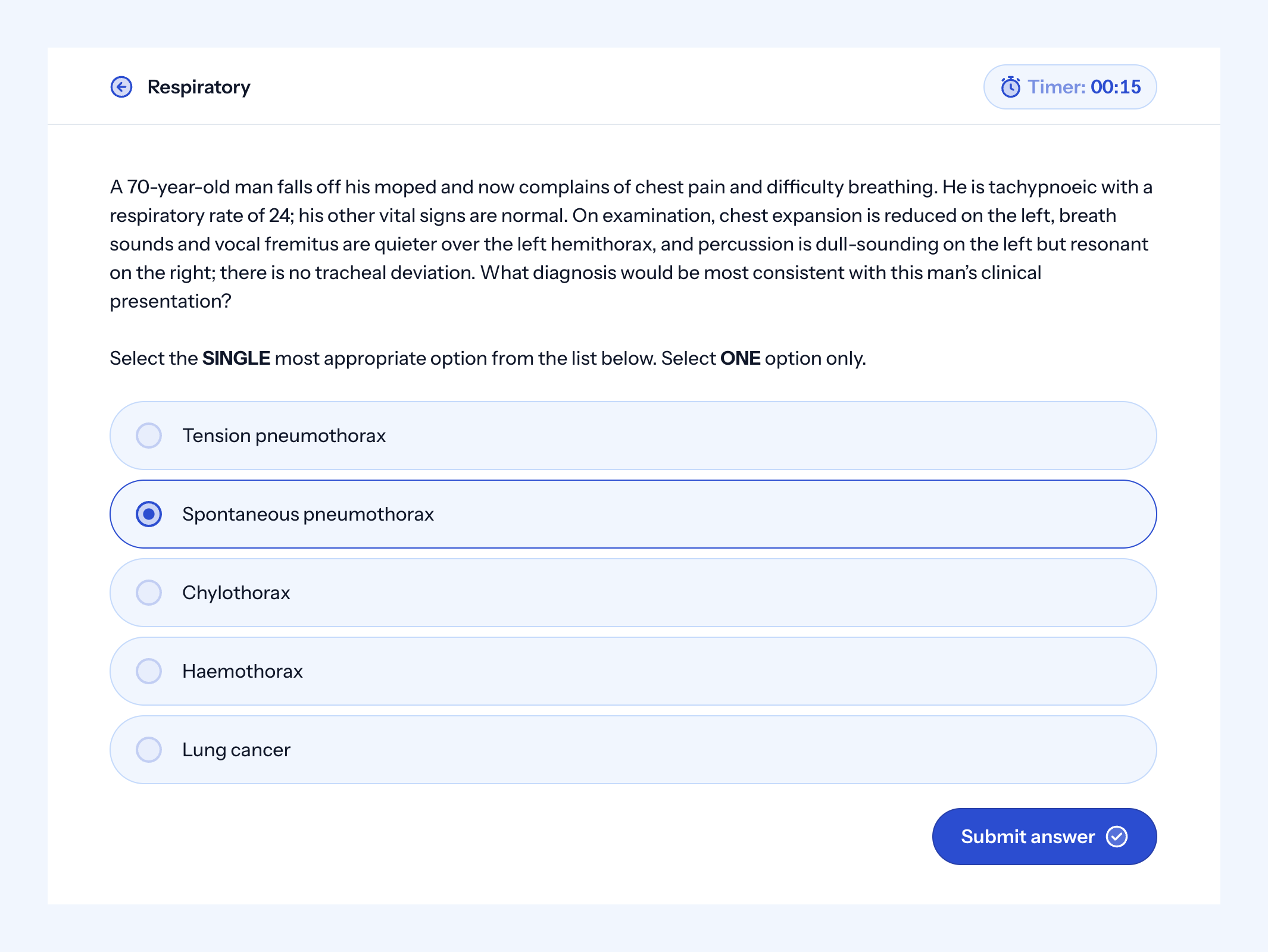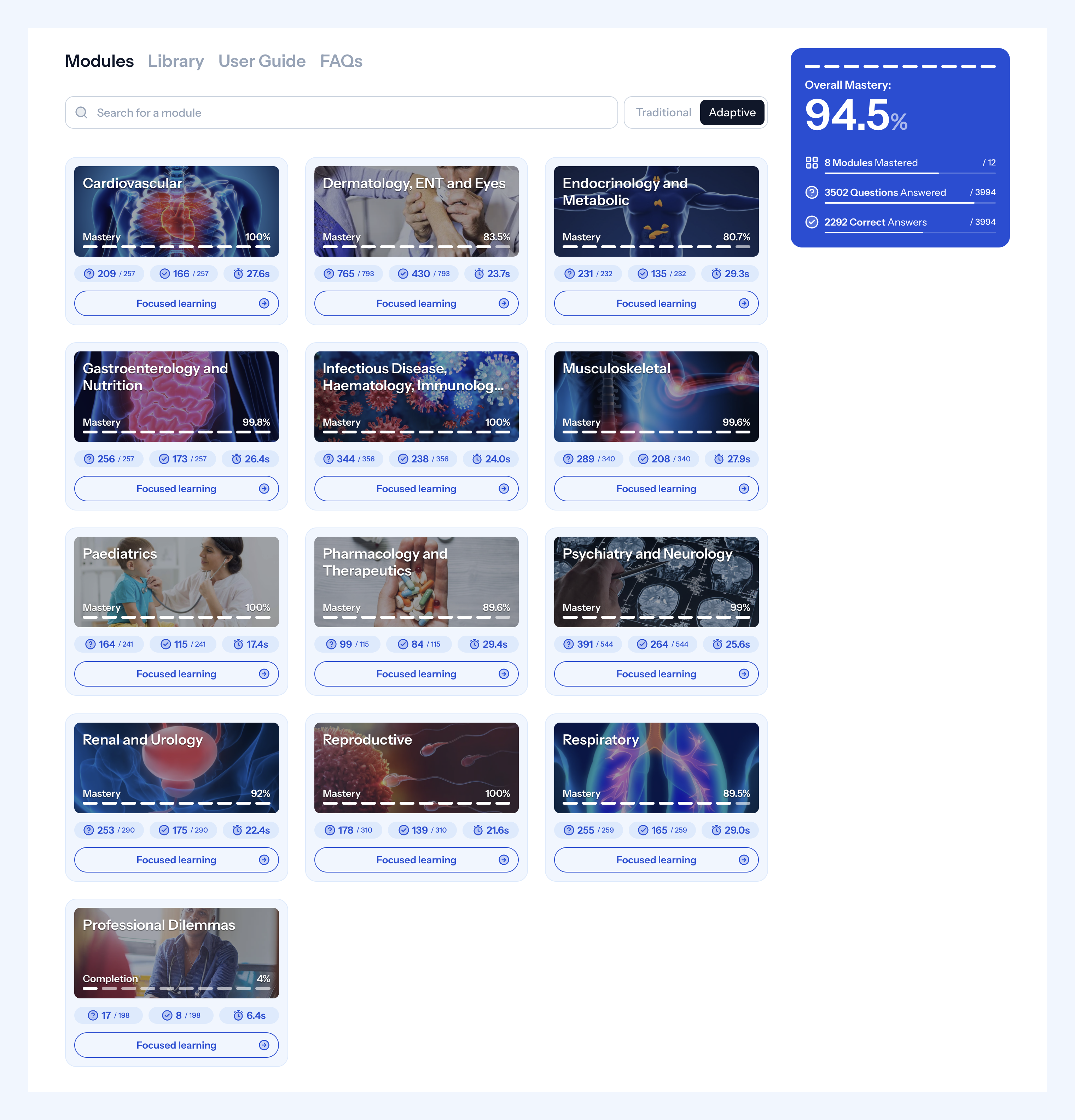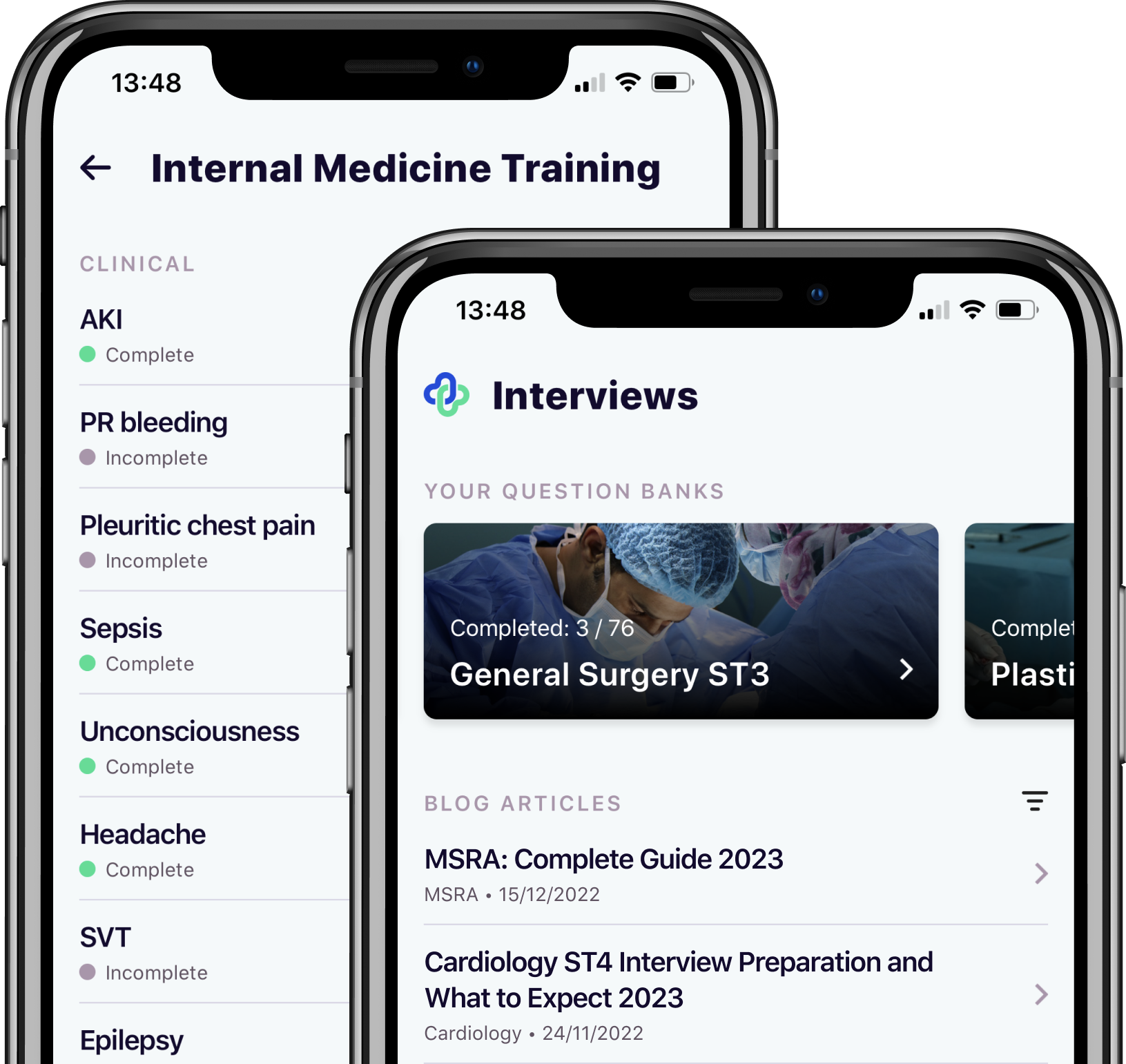
A Guide to GP Recruitment 2025
GP recruitment in the UK is a competitive process. The UK GP Specialty Training scheme is one of the best in the world; because of this, it can be difficult to get a job in your preferred location! The GP recruitment process ranks all applicants in one cohort, and your ranking determines your region offer and often your likelihood of getting your job rotation preferences during GP training. We’ve written this guide in combination with our other GP Recruitment material to help you achieve your offer and set you up for your future career in General Practice.
GP Recruitment Timeline
Applications for the next round of General Practice ST1 training posts, starting in August 2025, will be invited from 24 October – 21 November 2024. See below for the full national recruitment timetable.
| National Recruitment Timetable – August 2025 start date | |
|---|---|
| Advert Appears | 23 October 2024 |
| Apply from | 24 October 2024 (10:00am UK Time) |
| Application Closing Date | 21 November 2024 (4:00pm UK Time) |
| Invitations to Multi-Specialty Recruitment Assessment (MSRA) Expected by | 12 December 2024 |
| MSRA Window | 2 — 13 January 2025 |
| MSRA Results Expected by | TBC |
| First Offers from | 25 March 2025 (5:00pm UK Time) |
| Hold Deadline | 3 April 2025 (1:00pm UK Time) |
| Upgrade Deadline | 8 April 2025 (4:00pm UK Time) |
For round 2 of recruitment – with a February 2026 start date – the national recruitment timeline is TBC, however, we have included the dates for February 2025 for reference.
| National Recruitment Timetable – February 2025 start date | |
|---|---|
| Advert Appears | 22 July 2024 |
| Apply from | 23 July 2024 |
| Application Closing Date | 13 August 2024 |
| Invitations to Multi-Specialty Recruitment Assessment (MSRA) Expected by | 27 August 2024 |
| MSRA Window | 5 to 12 September 2024 |
| MSRA Results Expected by | 3 October 2024 |
| First Offers from | 21 October 2024 |
| Hold Deadline | 24 October 2024 |
| Upgrade Deadline | 25 October 2024 |
You can find more information about the recruitment timeline here.
The GP Application Process
1: Oriel GP Application
Applications for GP training are made electronically via the Oriel recruitment portal website. This is the first stage of the application process and you will only be asked to provide factual information about you and your employment history.
This is a fairly easy stage of the application, but it can take a bit of time to put in all the information. You can make sure this stage runs smoothly by asking your referees for permission for references early on. They will be contacted by the recruitment team separately, so they don’t need to actually send you a reference, just give you permission to put their details on the application form.
There is only a few weeks window to apply via Oriel, so make sure you don’t miss it and remember to actually press SUBMIT! The dates and deadlines relating to 2025/26 recruitment activity are available on the GPNRO website.
You will hear if you have been invited to attend the MSRA via direct messaging through Oriel. Technically, you should also receive an email to your allocated email address which you put on the initial application, but sometimes these can go awry, so don’t rely on this working!
Make sure to check your Oriel account regularly for messages throughout the recruitment process. Another tip is to use an email account which you definitely have access to at any time and add gpnro@hee.nhs.uk and noreply@oriel.nhs.uk to your email whitelist, to prevent them being filtered to junk.
If you meet the essential criteria outlined in the national GP ST1 Person Specification you will be longlisted for the next stage. Hooray!
For more information on applying for GP training click here.
2: Preferencing regions for national GP training recruitment
When you apply, you will be asked to indicate your region preferences in a rank order. You should only rank areas you would actually be willing to work in, as there is a chance you could be placed there even if it was your lowest preference. Programmes should be ranked in the order you wish them to be considered e.g. ‘1’ is your most wanted, ‘2’ your next most wanted, and so on. If you do not wish to be considered for a programme, you should move it to the ‘not wanted’ column. You will never be offered a post in the ‘not wanted’ column, even if it is the last post remaining when your rank is reached.
This ranking does take careful consideration, it is not a time to make a last-minute decision. GP specialty training is 3 years and the region can make a massive difference to your overall enjoyment and happiness. You can get some useful information about the different regions via their profile pages and access individual region websites – a quick google search should find these easily. Things to consider when choosing your regions are the types of programmes, the geography of the area, transport links to home and so on.
Your preferences are ‘locked’ once your application is submitted, but don’t panic if you have a sudden change of heart about a region, as there is a further window to edit your preferences; this window will span from the date of invitation to the MSRA until 48 hours before the first offers date; these dates are published on the GPNRO website.
The ‘Golden Hello’/ Targeted Enhancement Recruitment Scheme (TERS)
This incentive scheme offers a one-off payment of £20,000 (pre-tax) for accepting a GP training post in an area which has been hard to recruit to for the past three years.
Generally, these areas are more geographically rural and remote. But don’t let this put you off. They generally have had good feedback and often trainees end up staying in the area after training as they have enjoyed it so much.
You can select TERS areas via your Oriel application, by prioritising a ‘hard to recruit to’ region. The locations for posts commencing between August 2024 and February 2025 are shown in the table below. The number of posts is not always the same for each intake. More information can be found at the Targeted Enhanced Recruitment Scheme (TERS) and GPNRO website.
| HEE Region / Office | Training Programme | Number of TERS Posts |
|---|---|---|
| East of England | Basildon | 15 |
| Colchester | 22 | |
| Great Yarmouth | 18 | |
| Ipswich | 24 | |
| Kings Lynn | 18 | |
| Peterborough | 18 | |
| London | Barking, Dagenham & Havering | 26 |
| Bexley | 18 | |
| Ilford | 21 | |
| Midlands – East Midlands | Boston | 25 |
| Lincoln | 20 | |
| Sherwood Forest | 36 | |
| Midlands – West Midlands | Hereford | 18 |
| North Staffordshire | 30 | |
| Shropshire | 30 | |
| Worcester (Rural and Remote) | 5 | |
| North East & Yorkshire | Durham and Tees Valley | 60 |
| Dewsbury, Pontefract & Wakefield | 47 | |
| Doncaster | 30 | |
| North Cumbria | 20 | |
| North and East Yorkshire and Northern Lincolnshire | 10 | |
| North West | Blackpool | 22 |
| East Lancashire | 30 | |
| Lancaster | 11 | |
| South Cumbria | 7 | |
| South East – Kent, Surrey and Sussex | Chatham | 3 |
| Dartford Centre | 1 | |
| Gravesend Centre | 1 | |
| Gillingham (Medway) | 4 | |
| Halisham (East Sussex) | 12 | |
| Hastings | 7 | |
| East Ken (including Ashford, Canterbury and Margate) | 6 | |
| Swale (Medway) | 4 | |
| South West | Bristol, North Somerset & South Gloucestershire | 3 |
| Cheltenham | 4 | |
| Cornwall | 6 | |
| Exeter | 0 | |
| North Devon | 14 | |
| Plymouth | 27 | |
| Somerset | 12 | |
| Swindon | 12 | |
| Torbay | 3 | |
| Wessex | Dorchester (Rural) | 10 |
| Isle of Wight | 7 | |
| Mid Dorset | 5 | |
| Portsmouth | 20 |
Important information about TERS:
- The £20,000 is pre-tax.
- If it ends up that the training places are oversubscribed, standard recruitment and selection processes for training places will be applied.
- If you defer entry, the TERS payment will be removed, unless the deferment is for statutory reasons, e.g. maternity leave.
3: The Multi-Specialty Recruitment Assessment (MSRA)
This is a computer-based test which assesses both your clinical knowledge and your ability to problem solve. There are two papers, the professional dilemma paper (which is similar to the situational judgement test (SJT)) and the clinical problem-solving paper.
| Paper | Time | Question numbers |
|---|---|---|
| Professional Dilemmas | 95 minutes | 50 scenarios |
| Clinical Problem Solving | 75 minutes | 86 questions |
The following is an example of a question from each section within our MSRA question bank:
Professional Dilemmas Paper

Clinical Problem Solving Paper

You can find more information about the Professional Dilemmas and Clinical Problem Solving Paper in our MSRA Complete Guide.
Previously your score from the MSRA made up 60% of your overall score and the selection centre interview (see below) made up the remaining 40%. The top 10% of the cohort (usually a score of >575 points for the MSRA) would be given a direct offer without the need to complete the selection centre interview. However, as the interview stage has been removed from the selection process and will not be used for 2025-26 entry, your ranking will be based solely on your MSRA score. Therefore, it is vital that you prepare well for the exam, to give yourself the best possible chance of receiving your region and rotation preference.
Our adaptive MSRA question bank is here to help. Using AI-powered algorithm, each question you’re given is carefully selected based on your strengths and weaknesses, to help your learning progress quicker. What’s more, you’ll be able to see clearly on your dashboard which areas of the syllabus you’ve “mastered” and which you need to spend more time on.

The Clinical Problem Solving paper assesses the following 12 clinical topic areas:
- Cardiovascular
- Dermatology/ENT/Eyes
- Endocrinology/Metabolic
- Gastroenterology/Nutrition
- Infectious diseases/Haematology/Immunology/Allergies/Genetics
- Musculoskeletal
- Paediatrics
- Pharmacology & Therapeutics
- Psychiatry/Neurology
- Renal/Urology
- Reproductive
- Respiratory
Generally, the questions will be around investigations, diagnosis, emergencies, prescribing or management. Pay particular attention to Paediatrics and Obstetrics & Gynaecology, as these often come up and you may not have much experience in them if you haven’t done relevant placements. In general it’s worth trying to be as realistic as possible about where the gaps in your knowledge may be. Try thinking back to medical school about what your worst subjects were and make sure you don’t neglect them. If you use our adaptive MSRA question bank, the AI algorithms will calculate your mastery level for each topic so you’ll see exactly what your strengths and weaknesses are. This can help give you an idea of the best areas to target.
The Professional Dilemma paper is very similar to the Situational Judgement Test (SJT). The questions can be frustrating as sometimes all the answers seem like good options and other times they all sound terrible. The main things they are looking for are acting with integrity, coping under pressure, empathy, sensitivity, and recognising important concerns and responding appropriately. So, if you try to think about what you ‘should’ do as a good doctor you will do well. Have a read of the GMC good medical practice guide to remind yourself of what is expected.
The test centres for the MSRA are right across the UK and even aboard. They are held by Pearson Vue. You can book your MSRA test centre once you have received a message on Oriel or via email from the GPNRO asking you to register with Pearson VUE. In the message they give you specific account details to register with. You can’t register until you have received these details.
Don’t forget your ID when you go to the test centre. You need one form of original, valid, government issued ID that includes your name, recent recognisable photograph, and signature. Basically, take along your driver’s license or passport.
More information about the MSRA can be found here.
Take your MSRA revision to the next level with our artificial intelligence powered, adaptive question bank
Our state of the art algorithms will help you progress faster than ever.
Selection Centre Interview/Stage 3
We have included historic information about the GP selection centre interview. Please note that the following information outlines the interview stage of the selection process which took place prior to the Covid-19 pandemic; however, applicants will no longer undertake this element, and instead your ranking will be based entirely on your MSRA score.
This is the face to face ‘interview.’ Don’t be fooled though, this is not a standard interview where you are asked to explain why you have chosen to pursue a career in General Practice or present a portfolio. Each selection centre is equivocal. They are usually in hotels or sports stadiums and spread across the country. The rooms are non-clinical and you will not need to examine a patient.
Instead, there are 3x simulated consultation stations with actors and one written prioritisation question. The focus is on communication skills, not clinical knowledge, which can throw some candidates.
- 1x essay style written prioritisation question (30 minutes)
- 3x simulated consultation scenarios (10 minutes each). 1x patient, 1x relative/carer and 1x colleague (non-doctor) scenario.
The interview makes up 40% of your overall score. For more information about the interview see the Medibuddy advice on the Selection Centre Interview.
We’ve also prepared our GP selection centre interview question bank to help you prepare.
The marking scheme from the NRO (National Recruitment Office) assesses 4 competencies in the interview:
| Competencies for the Selection Centre Interview | |
|---|---|
| Empathy & Sensitivity | Capacity and motivation to take in others’ perspectives and to treat others with understanding. |
| Communication Skills | Capacity to adjust behaviour and language as appropriate to needs of differing situations. |
| Conceptual Thinking & Problem Solving | Capacity to think beyond the obvious, with analytical and flexible mind. |
| Professional Integrity | Capacity and motivation to take responsibility for own actions and demonstrate respect for all. |
You will be ranked in a national list based on your overall performance from both the MSRA and interview combined. This rank is the basis for your GP training offer region and also job rotations are allocated on this ranking basis…So it is a bit of a big deal.
4: Successful Offer for a GP Training Post
Congratulations, you have been offered a training post in the UK General practice scheme! You will receive the offer via Oriel. Remember, you have just 48 hours (exclusive of weekends) to respond to the offer. You have the option to accept, decline or hold.
Don’t forget to accept the offer if you do want it. There are horror stories of applicants forgetting to actually accept their offer via Oriel and their place then being allocated to someone else. Don’t let this be you. Press accept and then open a bottle of bubbles to celebrate. Well done, you have succeeded in gaining a place on the UK GP training scheme!
Personal Experience of the Recruitment Process
I am currently in GP training. The UK GP training scheme is great, you meet wonderful people and feel like you are genuinely making a positive difference to patients.
The recruitment process is fairly straightforward and takes only a few months from start to finish. Another positive is that, unlike other specialties, there isn’t the dreaded portfolio to prepare. However, this does mean that your marks and consequent ranking are based solely on your performance at the MSRA exam, which can seem a little daunting – what if I am having an off day?!
Making sure that you dedicate time to your exam preparation is even more important now, as you won’t have an interview, and therefore your ranking will be based entirely on the score you achieve within the MSRA. To help you to prepare effectively for the MSRA, we have produced an adaptive, MSRA question bank, which will provide you with over four thousand practice questions. Our system automatically tailors the questions to your learning needs, by assessing your areas for development and providing you with questions that will further support your learning, and help you to achieve a higher MSRA score.
Working as a junior doctor will have prepared you for some of the questions and scenarios in the MSRA. However, putting in some extra effort beforehand will ensure that you show off all the skills they are looking for and score highly.
I would say that the GP recruitment process is a fair assessment of the skills which make a good GP, but the process is not 100% reflective of actual GP life and can be a bit unnatural, so don’t think you can just ‘wing it’ on exam day. That being said, don’t panic, most people do well if they are prepared.
Good luck!
Useful links
- Oriel Applicant User Guide (for general guidance on how to navigate Oriel and technical help with the on-line application form)
- MSRA Complete Guide 2024
- GPNRO website (for dates and deadlines for the 2024/2025 applications).
- Applicant Guidance
- GP Application Process
- Medibuddy MSRA question bank

Take your subscriptions with you
Our mobile app allows you to access your interview and exam question banks wherever you are.





